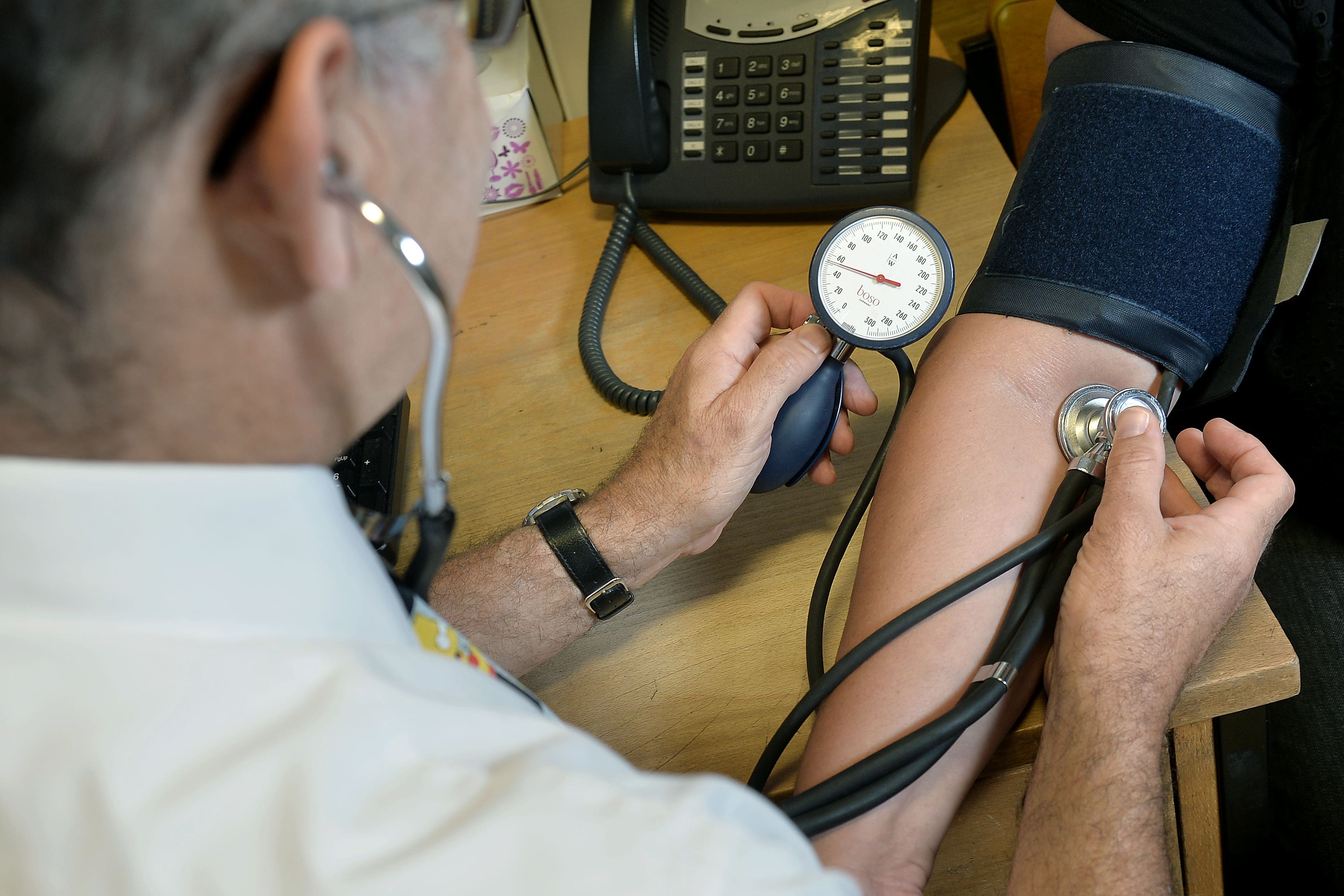‘Exciting’ development in tackling untreatable high blood pressure
Those who took a new drug during a clinical trial were found to have significantly lower blood pressure after other traditional medicines had failed.

Your support helps us to tell the story
From reproductive rights to climate change to Big Tech, The Independent is on the ground when the story is developing. Whether it's investigating the financials of Elon Musk's pro-Trump PAC or producing our latest documentary, 'The A Word', which shines a light on the American women fighting for reproductive rights, we know how important it is to parse out the facts from the messaging.
At such a critical moment in US history, we need reporters on the ground. Your donation allows us to keep sending journalists to speak to both sides of the story.
The Independent is trusted by Americans across the entire political spectrum. And unlike many other quality news outlets, we choose not to lock Americans out of our reporting and analysis with paywalls. We believe quality journalism should be available to everyone, paid for by those who can afford it.
Your support makes all the difference.Researchers claim they have discovered a way to tackle previously untreatable high blood pressure.
Those who took a new drug during a clinical trial were found to have significantly lower blood pressure after other traditional medicines had failed.
Researchers from Queen Mary University of London and colleagues at the US pharmaceutical firm CinCor examined whether patients would benefit from taking a drug called Baxdrostat.
Baxdrostat could potentially offer hope to many people who do not respond to traditional hypertension treatment
Baxdrostat works by preventing the body from making aldosterone – a hormone which helps to regulate the amount of salt in the body.
Some 248 patients with “treatment resistant” high blood pressure were given either a dummy drug – also known as a placebo – or varying doses of the drug for 12 weeks.
The study, which has been published in the New England Journal of Medicine and presented at the American Heart Association Scientific Sessions conference in the US, found that people who received the highest dose saw their blood pressure reduced by an average of 20 points.
Those taking smaller doses also saw their blood pressure fall – with the strongest doses linked to the highest reductions.
“The results of this first-of-its-kind drug are exciting, although more testing is required before we can draw comparisons with any existing medications,” said Professor Morris Brown, co-senior author of the study and professor of endocrine hypertension at Queen Mary University of London.
“But Baxdrostat could potentially offer hope to many people who do not respond to traditional hypertension treatment.
“The effectiveness of older drugs in individual patients can vary substantially, whereas a hallmark of this new class is that it can be predicted to work well in the patients whose aldosterone hormone has made them resistant to older treatments.”
Meanwhile a separate study, which is also being presented to the conference, found that GPs working in the NHS may be able to improve their heart disease risk assessment tools by also using genetic blood tests.
Researchers from North of England Care System Support, in partnership with the NIHR Clinical Research Network and Genomics plc, examined whether improvements could be made to one of the current risk assessment tools used to check a person’s risk of cardiovascular disease.
The tool gives patients a score based on their blood pressure levels, their cholesterol, body mass index score, age, gender and family history.
Patients deemed to be high risk may be offered statins to try and reduce their risk.
Researchers wanted to assess whether adding in a person’s polygenic risk score – checking their genetic risk score through a blood or salvia test – would lead to improvements in risk assessments.
Some 800 people were assessed using the new method in the trial.
The study found that 24% of participants had clinically significant changes in their cardiovascular disease risk when genetic information was added to current risk assessment tools.
GPs involved with the study judged they would change their management of 13.1% of their patients as a result of knowing their integrated risk scores.
Study lead, Professor Ahmet Fuat, a Darlington GP specialising in cardiology, said: “This kind of genomic testing has the potential to transform the way we manage cardiovascular disease in primary care. Prevention is at the heart of what we do as GPs and risk assessment underpins that.”